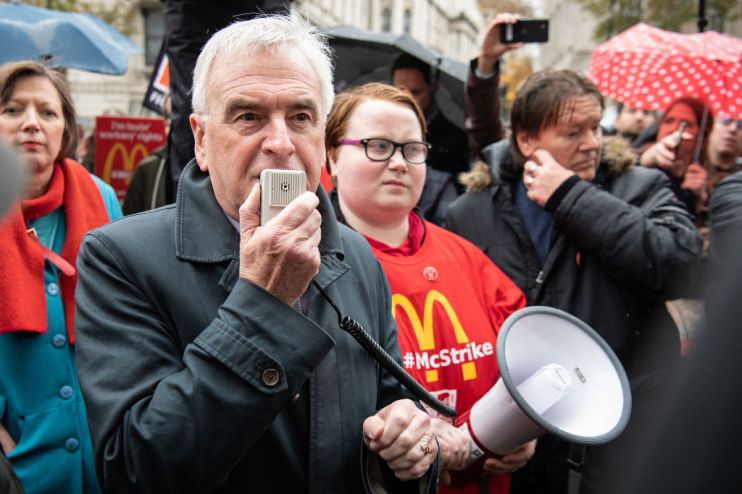Number with wages set by Whitehall could treble after election

The proportion of workers paid the minimum wage would treble under Labour’s plans and double under the Tories, a report has found, causing a dramatic increase in the number whose pay is set directly by Whitehall.
The Conservatives have pledged to raise the so-called national living wage to around £10.50 by 2024 and extend it to 21 to 24-year-olds. The £8.21 living wage is currently only available to over 25s.
Read more: Gap between Tory and Labour tax plans biggest in a generation
Under Labour’s more radical plan a £10 minimum wage would be introduced in 2020 and would cover all those aged over 16.
The Tories’ plans would bring one in six employees within scope, boosting wages for 2.5m people, the report from the Institute for Fiscal Studies (IFS) think tank said. Today 1.9m are paid the national living wage.
More than a quarter of workers’ wages would be set by the minimum under Labour’s plans, with an additional 4.6 million employees aged 21 and over affected, taking the total 6.5m.
The dramatic proposals for pay increases are central to each parties’ economic offering at the 12 December General Election.
The evidence suggests that minimum wage rises have so far been a success and substantially bettered people’s pay and living conditions without harming employment.
However, “both the Conservatives’ and Labour’s plans would take us into uncharted waters,” warned IFS research economist Xiaowei Xu.
“There will be some level beyond which a higher minimum wage will harm the employment prospects of the low-paid,” the IFS report said. “Previous evidence suggests we have not got there yet, but it does not tell us where the tipping point is.”
Xu said the proposals call for “a careful and incremental process to ensure that, if the employment prospects of the low-paid do start to be impacted, policymakers can change course before it is too late”.
Business group the British Chambers of Commerce has called for firms to be given “ample time” to adjust to any wage changes, arguing that they face enough costs already.
Read more: Hey, big spender: IFS boss Paul Johnson on the end of economic orthodoxy
A key part of Labour’s policy is that the minimum wage would be extended to all age groups, including 16 to 17-year-olds.
“There are particular risks to having very high minimum wages for young employees, many of whom may struggle to find employment at those wages,” the IFS said.
(Image credit: Getty)